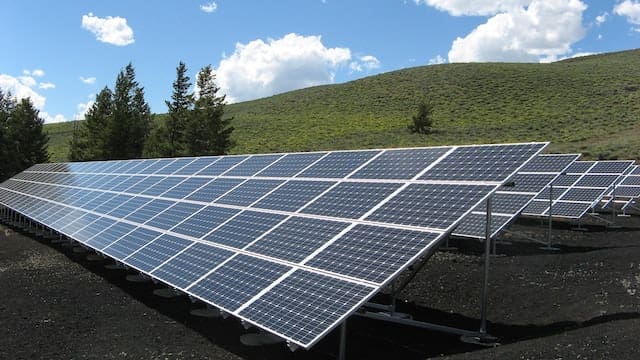In a major breakthrough for renewable energy in Africa, the SOLA Group has announced the successful and early launch of the Springbok Solar Power Project. The 195-megawatt (MW) facility is the continent’s first multi-buyer, flexible energy wheeling plant.
Delivered ahead of schedule, the project is a significant step in modernizing South Africa’s grid and creates a new model for large-scale solar development. It allows multiple companies to buy power from a single plant with flexible contract lengths, a first for the region.
A Pioneering Model for Clean Energy
This project brings SOLA Group’s total operational portfolio to 464 MWp, making it the largest operator of private power contracts in South Africa.
Key features of the pioneering Springbok project include:
-
Flexible Contracts: It offers both long-term contracts for maximum savings and shorter-term, scalable agreements, a new option for the market.
-
Anchor Buyer: Amazon served as the anchor buyer, with its long-term commitment being instrumental in unlocking financing and enabling the project to move forward as it works toward its goal to achieve net-zero carbon by 2040.
-
Diverse Corporate Buyers: Beyond Amazon, the facility has contracted with a range of significant partners, including Sibanye-Stillwater, Sasol, Afrimat, Redefine, Old Mutual, and Vodacom.
-
Major Local Impact: The project has invested R375 million in local communities and created employment for 500 people. It will also offset 399,000 tonnes of CO₂ annually.
Leaders in Sustainability Weigh In
Corporate partners highlighted the project’s importance for their sustainability goals.
James Hickman, AWS Country manager, South Africa, said: “As part of our commitment to being net-zero carbon by 2040, AWS is proud to support innovative renewable energy projects like Springbok Solar Power Project. This collaboration not only advances our sustainability goals but also helps pioneer new models for corporate renewable energy procurement in Africa. The multi-buyer approach demonstrates how cloud and sustainability can work together to create scalable solutions for businesses of all sizes.”
Richard Stewart, CEO of Sibanye-Stillwater, stated: “Achieving commercial operation of the Springbok Solar Power Project is another milestone in our journey to energy independence and decarbonisation. This is the second project to achieve commercial operation in our 407MW portfolio of contracted renewable energy projects, contributing to our goal of achieving carbon neutrality by 2040. We would like to thank our partners at SOLA Group for effectively managing the construction and start-up, securing our offtake.”
Breaking New Ground with Virtual Wheeling
A key innovation is the country’s first virtual wheeling power purchase agreement (PPA) with Vodacom. This opens up access to cost-effective clean energy for businesses that were previously unable to participate. The project has also allocated power to sell to the Southern African Power Pool (SAPP), helping to address energy deficits in neighbouring countries.
At full capacity, the plant will generate enough electricity to power approximately 150,000 homes each year.
A Lasting Community Legacy
SOLA’s community programmes are designed to create a lasting impact. Initiatives include the ‘Sports Against Crime’ tournament for local schools and a sewing and fashion programme that has graduated 47 learners with recognised qualifications and their own sewing machines to start businesses.
Jonathan Skeen, Managing Director at SOLA Group, says: “Springbok Solar Power Project cements our role as South Africa’s pioneering wheeling IPP, offering a range of long- and short-term products to our clients. Our collaboration with Amazon has been instrumental in enabling South Africa’s first wheeling project in 2020 and now Springbok, Africa’s first multi-buyer virtual wheeling facility. Delivered ahead of schedule, Springbok demonstrates that renewable energy can be provided reliably, flexibly and at scale.”
Sarushen Pillay, Sasol Executive Vice President: Business Building, Strategy and Technology, said; “We are delighted to have secured the opportunity with SOLA Group for additional green electrons. While also contributing renewable energy to our operations, this initiative contributes to our objective to unlock cost savings in our business.”
The project was constructed in a joint venture between SOLA Group and WHBO, with funding from a consortium of South African financial institutions. SOLA Group plans to build on this success with future projects in 2026 that will include significant battery energy storage (BESS).
